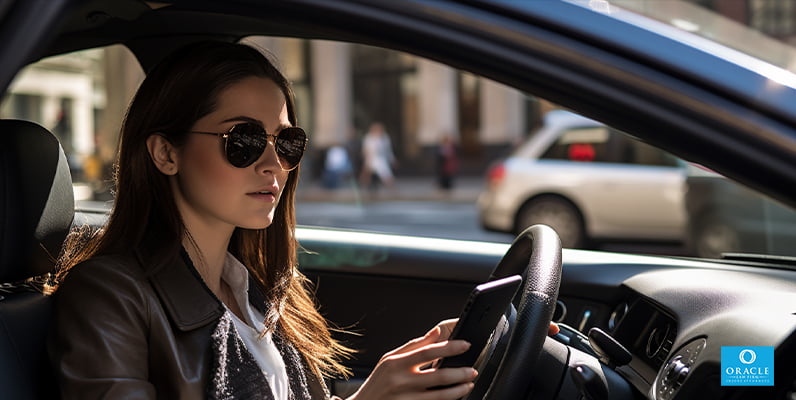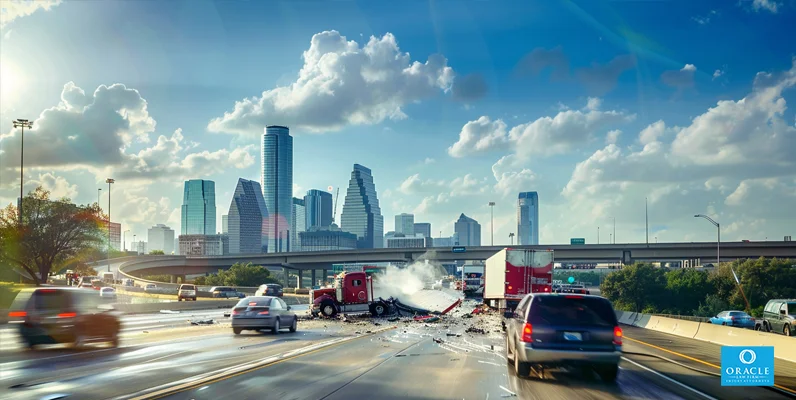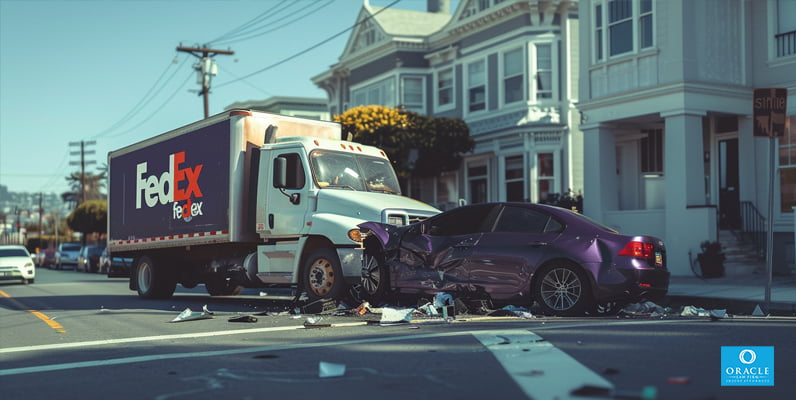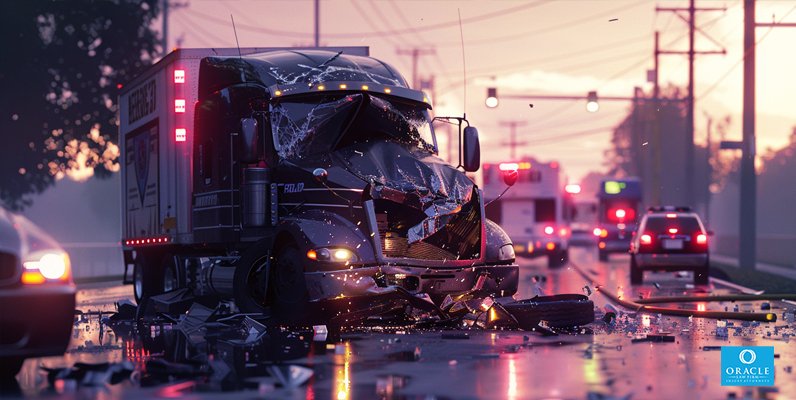Driving recklessly encompasses a wide range of actions on the road. Such drivers jeopardize their safety and that of everyone else on the road. If these drivers are involved in accidents, they might not only be subjected to civil lawsuits from those they’ve harmed but also face legal consequences. In California, driving recklessly is a criminal act, and its definition is deliberately kept broad to cover any instance where a driver shows a clear indifference toward others’ safety.
Accidents resulting from such driving can lead to severe injuries and substantial financial burdens for both the victims. If you or someone close to you has been harmed due to another’s negligence on the road, it’s crucial to understand all the surrounding circumstances and the cause of the accident. If it turns out that the other party was driving recklessly, they might be held accountable for your losses and could also be prosecuted. A seasoned car accident lawyer in Orange County would be wise to navigate such situations.
What You Need to Know About Reckless Driving Charges – California Vehicle Code 23103
In California, reckless driving is defined under the California Vehicle Code Section 23103. According to this code, reckless driving is considered a misdemeanor offense. It states that any person who drives a vehicle on a highway in willful or wanton disregard for the safety of others is guilty of reckless driving.
“willful or a wanton disregard for safety” is intentionally broad to encompass many dangerous driving behaviors. It includes actions such as excessive speeding, street racing, aggressive driving, ignoring traffic signs, weaving in and out of traffic, and any other behavior that shows a wanton disregard for safety or clear indifference toward the safety of others.

Determining Fault for a Reckless Driving Accident
When determining fault for a reckless driving accident, it is essential to establish that the driver’s actions met the criteria of reckless driving as defined by the California Vehicle Code. This can be done through various means, including eyewitness testimonies, police reports, video footage, and expert analysis.
If it can be proven that the driver was driving recklessly and that their actions directly caused the accident and resulting injuries, they can be held liable for the damages. This means the injured party can pursue a personal injury lawsuit against the reckless driver to seek compensation for medical expenses, lost wages, pain and suffering, and other related damages.
Aggressive or Negligent vs. Reckless Driving
It’s important to note that aggressive or reckless driving differs from aggressive or negligent driving. While all three involve dangerous behaviors on the road, there are distinct differences in their definitions and legal consequences.
Aggressive driving refers to behaviors such as tailgating, excessive honking, flashing headlights, and making rude gestures. While aggressive driving can be dangerous and lead to accidents, it is typically considered a traffic offense rather than a criminal offense.
Negligent reckless driving, on the other hand, refers to a failure to exercise reasonable care while driving, which harms others. Negligent driving can include distracted driving, failing to yield, or not following traffic laws. While negligent driving can lead to civil liability, it is not considered a criminal offense unless it rises to recklessness.

California Reckless Driving Is a Crime
In California, driving recklessly is not just a traffic offense but a criminal act. If convicted of reckless driving, the consequences can be severe. The penalties for reckless driving include fines, license suspension, probation, mandatory traffic school, and jail time.
Under California law, reckless driving is considered a misdemeanor offense. A misdemeanor conviction for reckless driving can result in a fine of up to $1,000 and/or imprisonment in county jail for up to 90 days. However, if the reckless driving incident resulted in bodily injury to a police officer or serious injury to another person, the penalties can be more severe.
Wet Reckless vs. Dry Reckless
In some cases, a reckless driving charge can be reduced to a “wet reckless” or a “dry reckless” through a plea bargain. A wet reckless is a reckless driving charge involving alcohol or drugs. It is often offered as a reduced charge in cases where the evidence of DUI (Driving Under the Influence) is not strong enough for a conviction.
Dry recklessness, however, refers to a reckless driving charge not involving alcohol or drugs. It is typically offered as a reduced charge in cases where the evidence of reckless driving is strong but there is no evidence of impaired driving.
Both wet and dry reckless convictions carry less severe penalties than standard reckless driving convictions. However, it’s important to note that a wet alcohol-related reckless driving conviction still carries consequences related to DUI offenses, such as mandatory alcohol education programs and increased penalties for subsequent DUI convictions.
Reckless Driving Examples in California
To better understand what constitutes reckless driving in California, let’s look at some examples:
- Excessive Speeding: Driving significantly above the posted speed limit, especially in areas with heavy traffic or pedestrian activity.
- Street Racing: Engaging in illegal races on public roads, endangering the lives of other drivers and pedestrians.
- Aggressive Driving: Tailgating, cutting off other drivers, making unsafe lane changes, or engaging in road rage behaviors.
- Ignoring Traffic Signs: Running red lights or stop signs, failing to yield the right of way, or disregarding other traffic control devices.
- Reckless Lane Changes: Abruptly changing lanes without signaling or checking blind spots, causing other drivers to swerve or brake suddenly.
- Driving Under the Influence: Operating a vehicle while impaired by alcohol or drugs significantly impairs judgment and reaction time.
These are just a few examples, and reckless driving can encompass a wide range of dangerous behaviors on the road. It’s important to remember that each case is unique, and the specific circumstances will determine whether the actions constitute reckless driving.
Penalties for Reckless Driving
The penalties for reckless driving in California can vary depending on the circumstances of the case and whether it is a first-time offense or a repeat offense. Generally, the penalties for a reckless driving case can include:
- Misdemeanor Conviction: Reckless driving is considered a misdemeanor offense in California, resulting in a fine of up to $1,000 and/or imprisonment in county jail for up to 90 days.
- License Suspension: A reckless driving conviction can lead to suspending driving privileges for a period of 30 days to six months.
- Probation: The court may impose probation as part of the sentence, requiring the individual to comply with certain conditions, such as attending traffic school or completing community service.
- Mandatory Traffic School: In some cases, the court may require the individual to complete a traffic school program as part of the sentence.
- Increased Insurance Premiums: A reckless driving conviction can lead to significantly higher insurance premiums, considered a serious traffic offense.
It’s important to note that if the reckless driving incident resulted in bodily or serious injury done to another person, the penalties can be more severe. In such cases, the individual may face felony charges, resulting in higher fines, longer jail time, and other serious consequences.
Reckless Driving Causing Bodily Injury Prosecution – California Vehicle Code 23104
If a reckless driving incident results in bodily injury to another person, the driver may face additional charges under California Vehicle Code Section 23104. This code section addresses reckless driving causing bodily injury. It is considered a wobbler offense, which can be charged as either a misdemeanor or a felony, depending on the circumstances and minor injury.
If charged as a misdemeanor, the penalties for reckless driving causing bodily injury can include imprisonment in county jail for up to one year and/or a fine of up to $1,000. If charged as a felony, the penalties can be more severe, including imprisonment in state prison for up to three years and/or a fine of up to $10,000.
In serious bodily injury or death cases, the driver may face even more serious criminal charges, such as vehicular manslaughter or gross vehicular manslaughter while intoxicated, which carry even harsher penalties.
Reckless Driving Conviction
If you are convicted of reckless driving in California, it can have significant consequences beyond the immediate penalties. A reckless driving conviction will result in a criminal record, impacting various aspects of your life, including employment opportunities, professional licenses, and personal reputation.
Additionally, a reckless driving conviction will add two points to your driving record. Accumulating too many points within a certain period can lead to license suspension or revocation. It’s important to note that reckless driving convictions can also increase insurance premiums, as insurers consider reckless driving a high-risk behavior.
Reckless Driving and the California Point System
The Department of Motor Vehicles (DMV) operates a point system to track driving offenses in California. Each traffic violation carries a specific point value, and accumulating too many points within a certain period can result in penalties, such as license suspension or increased insurance premiums.
For reckless driving, the offense carries two points on your driving record. If you accumulate four or more points for unsafe driving within 12 months, six or more points within 24 months, or eight or more points within 36 months, the DMV may take action against your driving privileges.

Speeding alone is not enough to constitute reckless driving in California
It’s important to note that speeding alone cannot constitute reckless driving in California. While excessive speeding can be dangerous and lead to accidents, it is typically considered a traffic offense rather than a criminal offense.
To be charged with reckless driving, the driver’s actions must meet the criteria of willful or wanton disregard for the safety of others, as defined by the California Vehicle Code Section 23103. This means that the driver’s behavior must go beyond simply a speeding ticket exceeding the speed limit and demonstrate a clear indifference toward the safety of others on the road.
Violation Point Count – California Vehicle Code Section 12810
As mentioned earlier, accumulating points on your driving record can have consequences, including license suspension or revocation. The California Vehicle Code Section 12810 outlines the violation point count for various driving offenses.
For reckless driving, the offense carries two points on your driving record. Knowing your point count and maintaining a clean driving record is important to avoid penalties.
Negligent Operator: Violation Points – California Vehicle Code Section 12810.5
In addition to the violation point count, the California Vehicle Code Section 12810.5 addresses the consequences for being classified as a “negligent operator.” A negligent operator accumulates too many points on their driving record within a certain period.
If you accumulate four or more points within 12 months, six or more points within 24 months, or eight or more points within 36 months, the DMV may classify you as a negligent operator. As a result, your driving privileges may be suspended or revoked, and you may be required to complete a full driver’s license and improvement program.
Can I File a Lawsuit Against a Reckless Driver?
If you have been injured in a car accident caused by a reckless driver, you may be eligible to file a personal injury lawsuit against the responsible party. For a successful lawsuit, you must establish that the other driver’s reckless behavior caused the accident and your serious injuries thereafter.
To prove negligence in a personal injury lawsuit, you will need to demonstrate the following elements:
- Duty of Care: The other driver had a legal duty to operate their vehicle safely and responsibly.
- Breach of Duty: The other driver breached their duty of care by driving recklessly.
- Causation: The other driver’s reckless driving directly caused the accident and your injuries.
- Damages: You suffered actual damages, such as medical expenses, lost wages, pain and suffering, and other related losses.
If you can establish these elements, you may be able to recover compensation for your damages through a personal injury lawsuit. It’s important to consult with a car accident lawyer specializing in reckless driving cases to assess the strength of your claim and guide you through the legal process.

Contact Oracle Law Firm | Accident & Injury Attorneys If You Or a Loved One Has Been a Victim of Reckless Driving Car Accident In California
If you or a loved one has been a victim of a car accident caused by a reckless driver in California, it’s crucial to seek legal representation from a skilled car accident lawyer. The experienced attorneys at Oracle Law Firm | Accident & Injury Attorneys can help you navigate the complexities of your case and fight for the compensation you deserve.
With their extensive knowledge of California’s reckless driving laws and personal injury litigation, the attorneys at Oracle Law Firm | Accident & Injury Attorneys will diligently hold the reckless driver accountable for their actions and pursue maximum compensation for your injuries and losses.
Don’t let the financial burden of medical expenses, lost wages, and other damages overwhelm you. Contact Oracle Law Firm | Accident & Injury Attorneys today for a free consultation and let their dedicated team fight for your rights.
Frequently Asked Questions on Reckless Driving – Vehicle Code 23103
Is the person who operates a motor vehicle with a willful or wanton disregard for the safety of other people or property engaging in reckless driving?
According to California Vehicle Code Section 23103, a person who operates a motor vehicle with a willful or wanton disregard for the safety of other people or property is engaging in reckless driving.
Can You Avoid Jail Time for Reckless Driving?
Whether or not you can avoid jail time for reckless driving depends on the specific circumstances of your case. Reckless driving is considered a misdemeanor offense in California, and a conviction can result in imprisonment in county jail for up to 90 days. However, in some cases, a skilled attorney may be able to negotiate a plea bargain or alternative sentencing options that could potentially avoid jail time.
Can You Lose Your License for Reckless Driving?
If convicted of reckless driving in California, you can lose your driver’s license. The DMV may suspend your driving privileges for a specified period, typically 30 days up to six months, depending on the offense’s severity and driving record.
Can the Court Impound Your Car?
In certain cases, the court may order the impoundment of your car if you are convicted of reckless driving. This typically occurs when the reckless driving incident involves street racing or other dangerous behaviors. The impoundment period can vary depending on the circumstances of the case.
Can my reckless driving charge be reduced from a misdemeanor to an infraction?
In some cases, a reckless driving charge can be reduced from a misdemeanor to an infraction through a plea bargain. However, this will depend on your case’s specific circumstances and the prosecutor’s discretion.
How Many Points Is Reckless Driving?
Reckless driving carries two points on your driving record in California. Accumulating too many points within a certain period can result in penalties, such as license suspension or increased insurance premiums.
How Long Does Reckless Driving Stay on Your Record?
A reckless driving conviction will stay on your driving record for a specified period, typically three to ten years, depending on the severity of the offense. However, it’s important to note that the conviction will remain on your criminal record indefinitely unless expunged.






